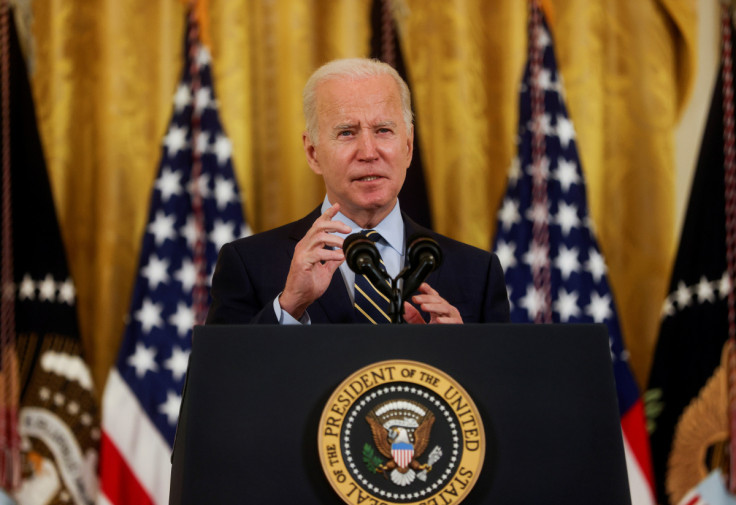Biden To Sign Order Seeking New Prescription Drug Cost Savings - Official

President Joe Biden will sign an executive order on Friday pushing federal officials to drive prescription drug costs down during a pre-election trip designed to promote Democrats' health policies, an official said.
The order requires the U.S. Department of Health & Human Services (HHS) to outline within 90 days how it will use new models of care and payment to cut drug costs, according to the White House official, who declined to be identified previewing the president's action.
Biden plans to sign the order during a trip that includes stops in California on Friday and Oregon on Saturday as he positions his party as a champion of lower healthcare costs ahead of Nov. 8 midterm elections at a time that inflation ranks among voters' top concerns.
Data on Thursday showed U.S. consumer prices leapt 8.2% in the 12 months through September, after peaking above 9% in the summer and growing at their fastest pace since 1981. Healthcare costs were partly to blame in the most recent month, along with food and rent.
"Americans are squeezed by the cost of living - that's been true for years and is a key reason the president ran," the White House said in a fact sheet to be released on Friday that blames pharmaceutical companies for raising prices. "Health care costs in particular are driving inflation."
HHS was given the power to promote new approaches to lowering costs and widening care through an Innovation Center, created by a 2010 healthcare reform law known as Obamacare and housed at the Centers for Medicare and Medicaid Services.
In August, Biden signed a $430 billion Inflation Reduction Act, authorizing the federal government to negotiate prices on some prescription drugs and cap costs for the government's Medicare health program.
Some 65 million Americans are enrolled in Medicare programs, which have repeatedly come under fire for its cost to taxpayers.
© Copyright Thomson Reuters 2025. All rights reserved.





















